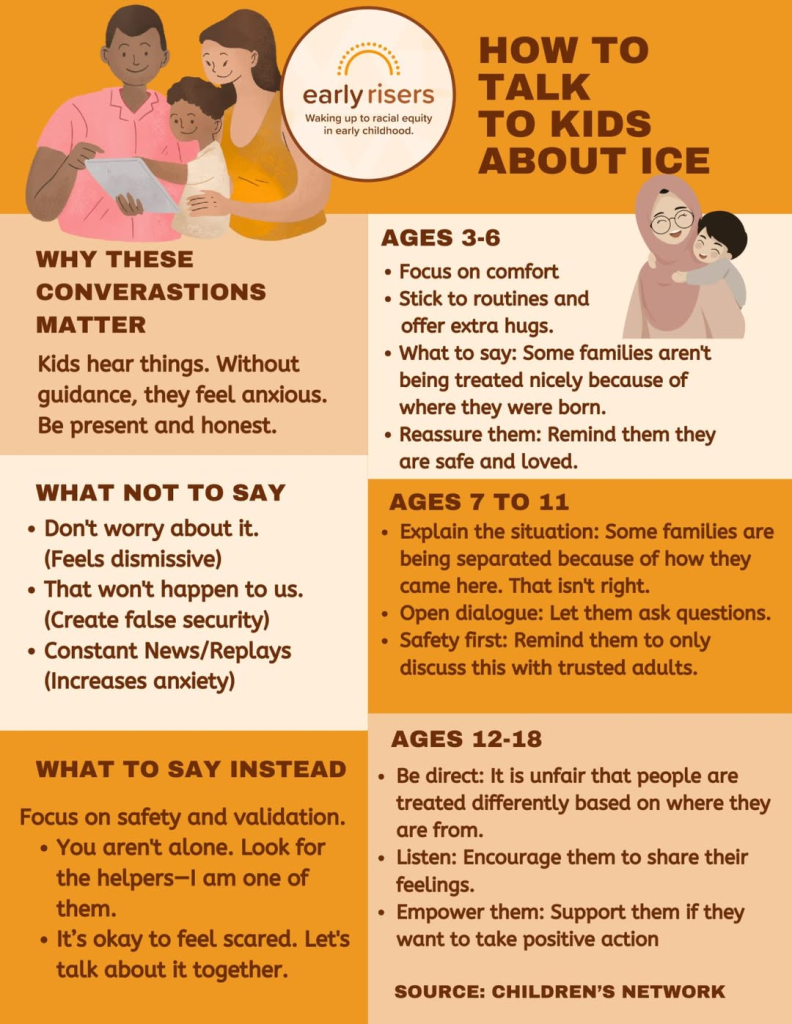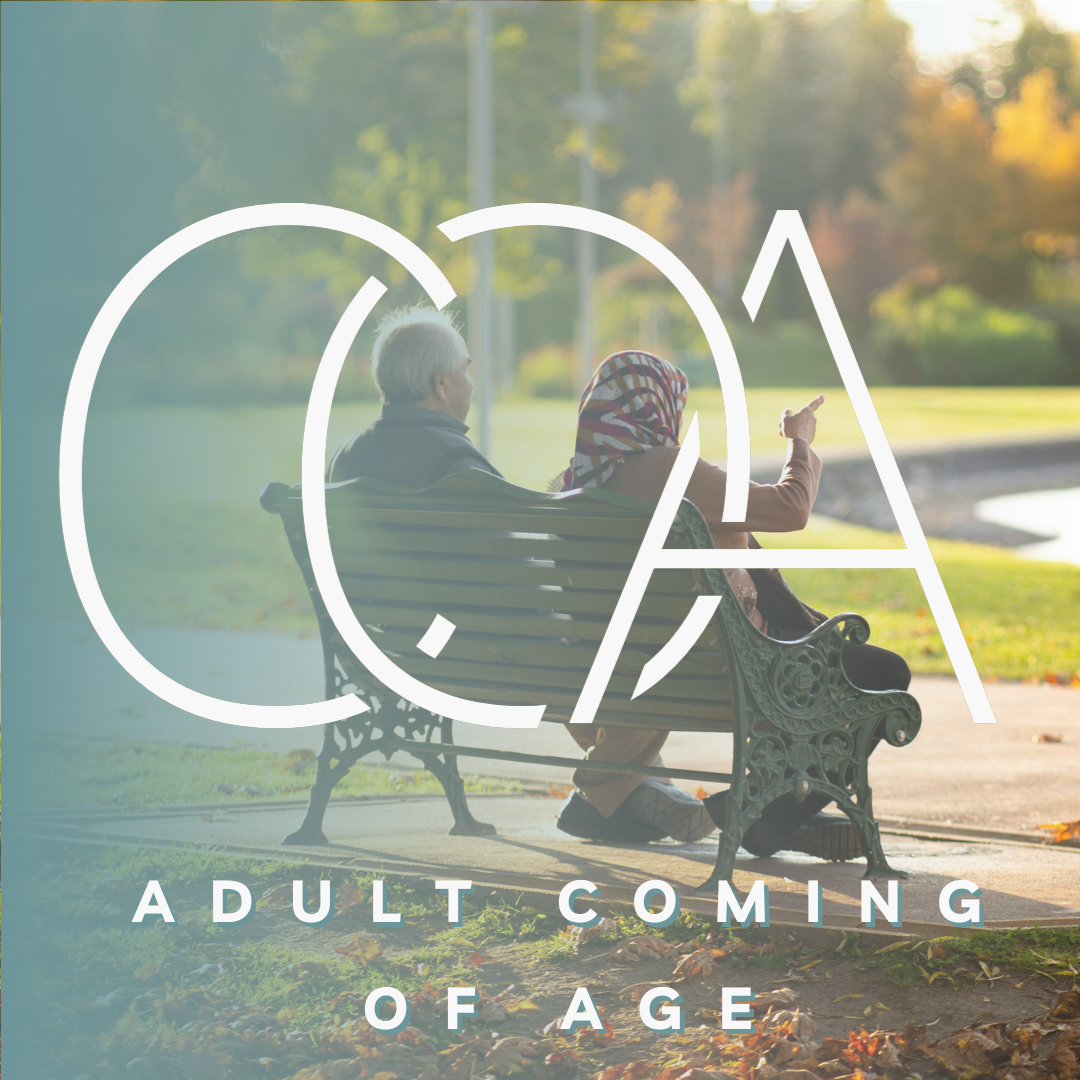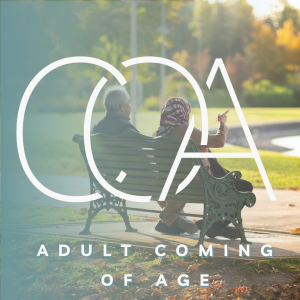
“Let your life be a counter-friction to stop the machine. What I have to do is to see, at any rate, that I do not lend myself to the wrong which I condemn.” ― Henry David
Thoreau Greetings, Families! The shortest month with the longest shadows has arrived, and our hearts are tender from all we’ve been holding. Let us re-center love this month, not in the glittery, greeting-card way, but in the steady, courageous way that shows up when the world needs us most. And because everything is easier as a village, I invite you to pull out your calendars and make note of these opportunities to gather in love and learning!
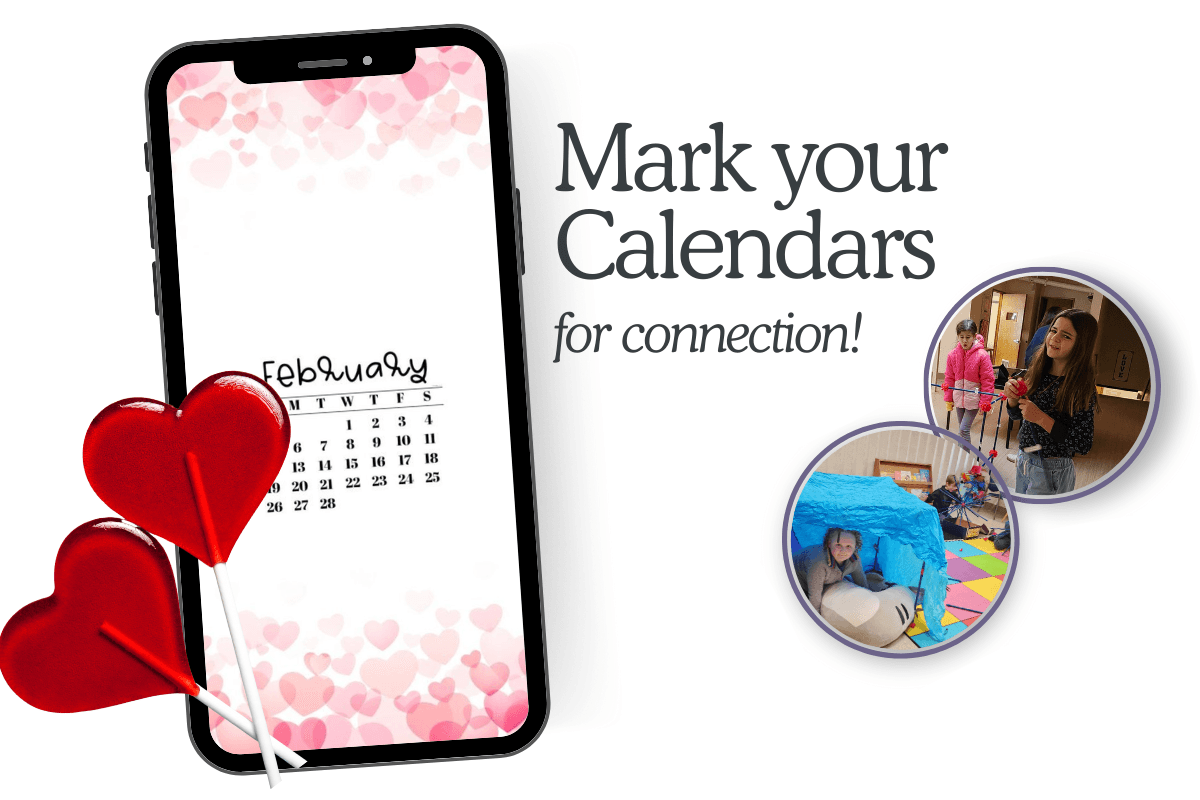
UPCOMING EVENTS:
2/8 Family Breakfast @ 8:45 (register HERE and bring a dish if you are able)
2/8 Eliot Family Camp Q&A session after RE pickup in the sanctuary
2/12 Parent Connection Dinner @ 6:30 (register HERE, one time only, to get reminders)
PLAN AHEAD4/17-19 Youth Coast Retreat (register HERE!)
More information about our events can be found below, and info for all events can be found at uucorvallis.org by clicking “News” in the menu bar and then selecting “RE Council” from the drop-down menu.

Big news! Our Endowment team has money to give as scholarships to get families to Eliot Institute’s Family Camp! We’re excited to use these funds in service of getting more families to this formative and inspiring gathering, so please don’t hesitate to apply! To help you decide if Eliot would be right for you (spoiler, it would be!), Linda Hardison will be showing an informational video and answering all your burning Eliot questions after you pickup your children from RE on February 8th. Please consider attending if you’re at all curious about family camping opportunities in a UUI context!

The annual Youth Coast Retreat is around the corner, and you don’t want to miss the fun! Your early registration will give us time get a rental van reservation if we need one again this year, so please check your calendars and register promptly if you are able. Youth will be staying at our usual place in Waldport, with a back door that opens right onto the beach. This is a relaxed, 2-night bonding weekend, where the youth will play collaborative games, cook together, spend time in nature, and co-create their own worship experience before coming home. I have it on Edna’s good authority that it’s the best thing they do all year. More details are in the registration link!

These are tricky times for everyone, but perhaps especially for parents who are navigating how much to shield and/or engage with our children about the things that are going on in the world. For that reason, I’ve added a page to our Family Faith Formation Toolkit with resources for parents during these challenging times. I hope you find some useful ideas there. If you have found resources useful that you’d like me to add to the list, please let me know! We’re all in this together!
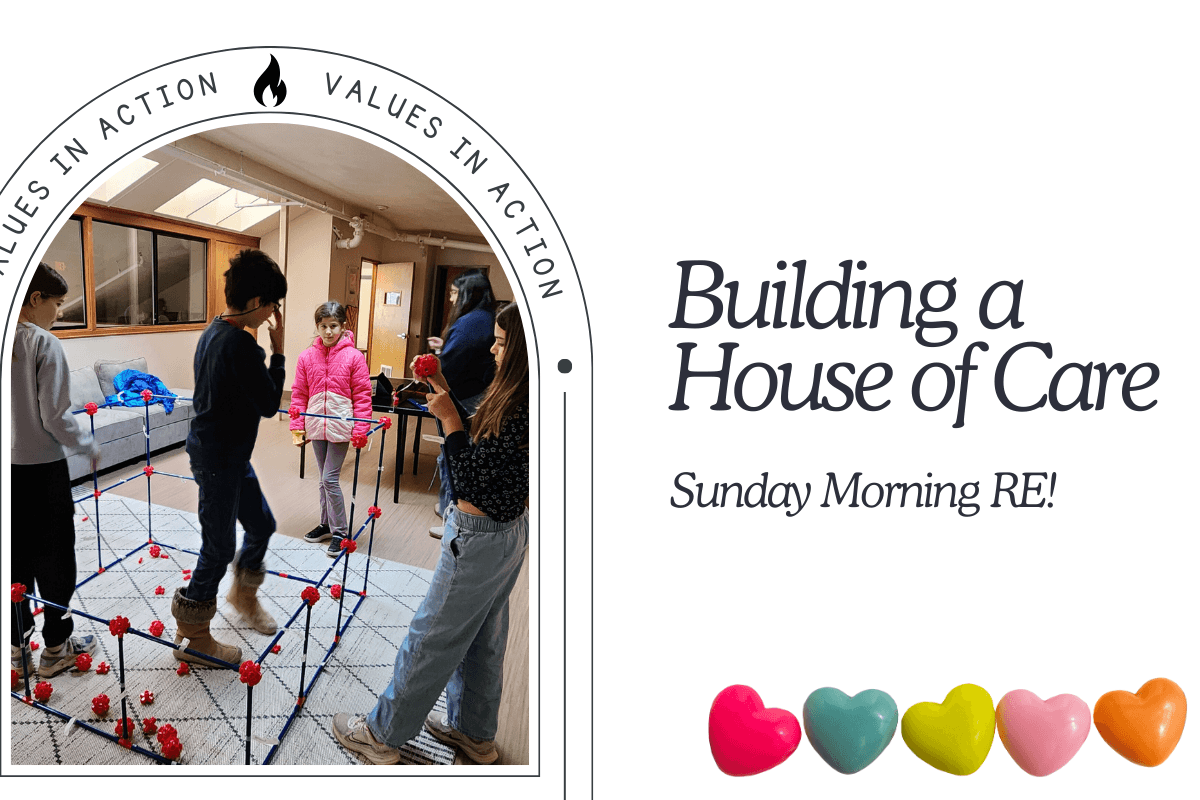
In January, we spent time exploring ways we feel safe and loved, and ways to help others feel cared for. Our Spirit Play kiddos each got their own box to sit inside of, with a light and a welcome mat, and they decorated the insides with things that make them feel safe and loved, and were invited to take them home as a place to hang out whenever they want to be surrounded by things that give them the warm-fuzzies. Both our Spirit Play and Seeker Space groups built a “community of care” using our giant tinker toys. They had to come up with things that help people feel seen and cared for, and label each of the supports with one of those attributes to build a home for their community of care. If they needed more support, they had to come up with more attributes of a caring community. I read things like love, time, money, and family, among many other things that go into creating a community of care. The Seeker Space structure is still intact on the mezzanine, so pop upstairs, climb inside, and see what kind of things our kids decided are necessary for a welcoming community. It’s sure to give you a case of the heart-swells!

Occasionally, I become aware that there is a young person who really wants to attend a thing and it got scheduled for a date that they already have an obligation, or a weekend that they’re at their other parent’s house, and it really stinks! Some parents have offered me copies of their kids’ sports schedules, performance dates, and custody rhythms, and I refer to them every single time I plan an event like a service project or a retreat. It’s also great to have because we want to show up for our kids and cheer them on when they have a special event! So consider this an invitation to share, only to the extent that feels right for your family, any blackout dates on your child’s calendar (We’ve already paid for camp that week!) or events that they’d enjoy some extra support for (They would love some more fans at the basketball tournament!) and I’ll share them with the adults who directly support them in their RE spaces and refer to them before selecting dates for major events. I can’t always accommodate everyone’s schedule, but I use what I’m given to choose dates that work for as many kids as possible.

The family that serves together… builds beloved community! The Curry-Grant household is loaded with cheerful volunteers! Both Kevin and Molly serve on separate weeks in our Seeker Space. They bring calm, kind, and steadying energy to a group that can be more than a little boisterous! And Edna? She’s quick to volunteer in formal roles, when asked, but what stands out to me is the way I can always count on her to make new kids feel like they really belong. On more than one occasion, I’ve said, “Hey, Edna! We’re going to have a new kid today,” and she’s on it! I’ll see her giving a building tour, showing new kids where the snacks are, and introducing them to the other youth. Edna has the spiritual gift of hospitality! Big thanks to this family that oozes with volunteerism! We are so grateful for all you bring to our community!
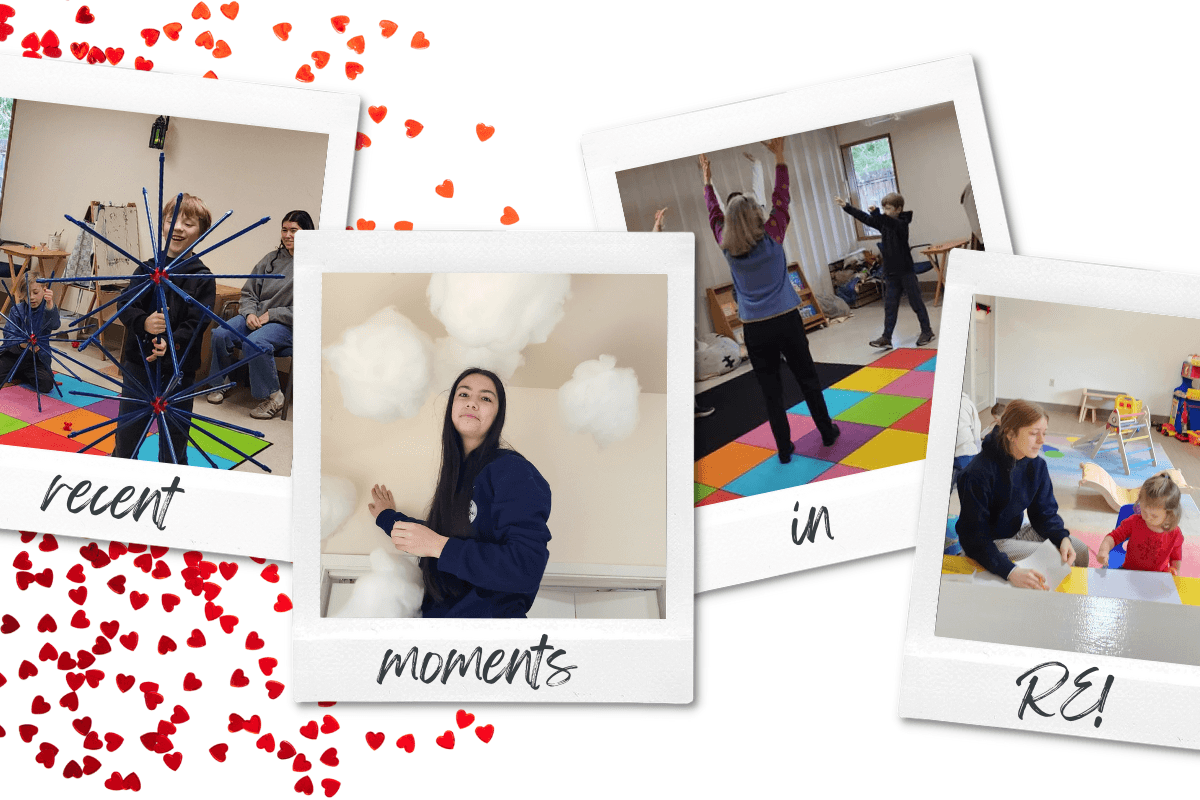
There’s been so much goodness in RE in the last month, it’s hard to capture it all in pictures! One thing I want to make sure you notice, though, is that second picture. This is Pheobe, and she’s our newest childcare staff member, filling in primarily in Spirit Play when Niana is away at volleyball tournaments, but she’ll also be in the Rainbow Room from time to time when we need a sub. Phoebe has completed the child development class at the high school and is first aid and CPR certified. Most importantly, she’s got a heart for working with children! We’re lucky to have her on the team! While we’re talking about our amazing childcare providers, I want to remind all parents that we can often provide free childcare for UUFC events, given enough notice. Parents can fill out THIS FORM any time you need to request childcare for a Fellowship gathering, and I’ll do my best to assemble a care team from our fabulous pool of background-checked volunteers and youth childcare staff! I’m wishing you hope and love this month! And as always, if you need to chat, I’m just an email or a phone call away.






